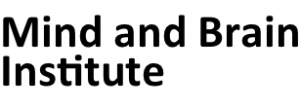Esketamine for treatment-resistant depression submitted to FDA
Janssen Pharmaceuticals, the Pharma branch of the conglomerate Johnson & Johnson, with its headquarters in New Brunswick, New Jersey, USA, announced on September 4th, 2018, that the company submitted a New Drug Application (NDA) to the US Food and Drug Administration for esketamine nasal spray.
The submission is based on five phase three studies, three short-term-studies, one withdrawal maintenance of effect study (in which one half of the patients were withdrawn from treatment, while the other half received continued treatment), and one long-term safety study over 52 weeks. If esketamine is approved for treatment-resistant depression, the label will most likely include treatment with a newly initiated oral antidepressant, because this was the usual treatment regime in the phase III-trials.
Esketamine acts as a non-competitive N-methyl-D-aspartate (NMDA) receptor antagonist. Interestingly, a study published just last week in the American Journal of Psychiatry shows that the antidepressant effect of esketamine can be blocked by the opiate receptor antagonist naltrexone. This suggests an opioidergic mechanism of action of esketamine.
Janssen also announced that “esketamine nasal spray will be self-administered by patients under the supervision of health care professionals.” This is due to its abuse potential.
Esketamine for treatment-resistant depression currently receives a lot of media-attention. The “Deutsche Apotheker-Zeitung” published an article in July 2018, which is available here (in German). I gave the journal an interview, which, however, is only available for subscribers of the journal (also in German). Please leave me a note if you want to get it from me.
I will regularly post updates on the status of esketamine, which also has to undergo the AMNOG (Act on the Reform of the Market for Medicinal Products) process in Germany.


